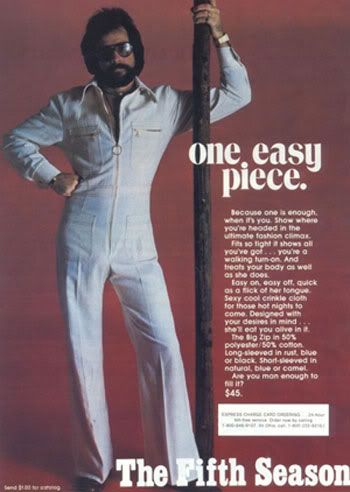Also, what I hope is NEXT - young designers stepping up their game by producing high quality items at a lower price. Sidestep the fashion system and you will lower your costs significantly.
I was at the Yohji store in Paris today and a cotton jersey cardigan carried a tag of 480 Euros. There has to be a better away. Cotton jersey costs $5-10 a yard for a company with buying power like Yamamoto. This is a real opportunity for new designers to compete on both quality and price.
Also, what's NEXT. Chinese designers like Uma Wang and Ziggy Chen leading the next wave. We have not heard from that neck of the woods yet and something tells me we will.
I was at the Yohji store in Paris today and a cotton jersey cardigan carried a tag of 480 Euros. There has to be a better away. Cotton jersey costs $5-10 a yard for a company with buying power like Yamamoto. This is a real opportunity for new designers to compete on both quality and price.
Also, what's NEXT. Chinese designers like Uma Wang and Ziggy Chen leading the next wave. We have not heard from that neck of the woods yet and something tells me we will.


Comment